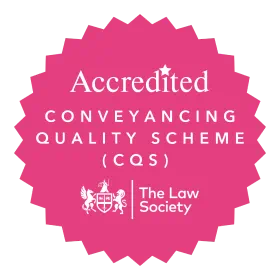Life is filled with its unpredictable twists and turns, but there is a way that you can gain some peace of mind by making a Lasting Power of Attorney (LPA). Having protection in place means that important decisions can be made should you ever lose the mental capacity to care for yourself.
In this blog our dedicated Wills & Probate Solicitors share the importance of making an LPA so that your future wellbeing can be taken care of by trusted, appointed individuals.
What is a Lasting Power of Attorney?
A Lasting Power of Attorney or LPA, is a legal document designed to entrust a chosen individual (or individuals) with the authority to make decisions on your behalf in the event that you are no longer able to do so yourself.
Creating an LPA allows someone to take care of important matters on your behalf, should you be unwell or lose the mental capacity to make such decisions for yourself. It can help you to express your wishes, retain your dignity and allow for important matters to be dealt with without delay or difficulty.
The legal document will set out your instructions, preferences and specific wishes, selecting a named person (or persons) to act on your behalf. Once finalised, the LPA must be registered with the Office of the Public Guardian before it can be used by your Attorneys.
This thoughtful provision comes in two forms; an LPA that covers health and welfare, and an LPA that covers property and financial affairs.
To give some examples, a health and welfare LPA allows the appointed person/s to make important decisions about medical care, treatment plans, life-sustaining treatment, care home choices and daily welfare such as your routine, diet, social life and general lifestyle.
Whereas a property and financial affairs LPA means that someone else can manage your bank accounts, buy or sell property, pay bills, collect benefits, deal with your pension, utilities and instruct repairs to your home.
Both are equally important. Many people decide to take out both so that they have covered all bases, however, some people choose to just make the one that concerns them or matters to them most.
Who Should Have an LPA?
The most obvious example of when a Lasting Power of Attorney becomes an incredibly helpful provision, is when someone has dementia and is no longer able to manage their affairs.
However, people can lose capacity at any point, through a traumatic accident, falling ill or suffering from a mental health episode. Often people find themselves unable to manage important matters as they get older and having someone who is authorised to help you can be a welcome reassurance and allow you to protect your autonomy.
LPAs are useful for everyone to have, however, if you have a family history of dementia, suffer with serious mental health issues or have a brain injury, then you should consider making LPAs as a priority.
Why Waiting isn’t an Option
One of the key points about LPAs is the urgency to make them whilst mental capacity is still intact.
It is not possible to make an LPA if capacity is already lost as a Certificate Provider must test your mental capacity first. If you have concerns about memory or there is already a diagnosis of a degenerative illness, then it can still be possible to make an LPA, as long as the person making the LPA is still capable of making their own decisions. But, as the ability may be lost in the future, it is important to act quickly.
Many people unfortunately do not realise the importance until it is too late. This often means that matters become more complicated, and families need to apply to the Court of Protection for authority to act on their loved one’s behalf. This can take time, incur additional costs, and cause further issues.
Ready to Make a Lasting Power of Attorney?
Whilst we cannot foresee every bump in the road ahead of us, we can put in place robust protection so that life can continue for family and those that care for us.
If you want to put future protection in place for yourself, or if you are concerned about your elderly parents or relatives and want to protect them, then we can explain the process and talk through the options available.
Contact us on 01420 82879 or email [email protected]. If you or your family members have trouble travelling due to health, then we are happy to offer a home visit so that matters can be discussed in the comfort of your own home.
Please get in touch today so that we can empower you with the peace of mind that an LPA provides.
The contents of this blog are for general awareness purposes and do not purport to legal or professional advice. The law may have changed since this blog was published. Readers should not act on the basis of information shared within this, or any other blog, but should seek appropriate, professional advice on their own circumstances.



